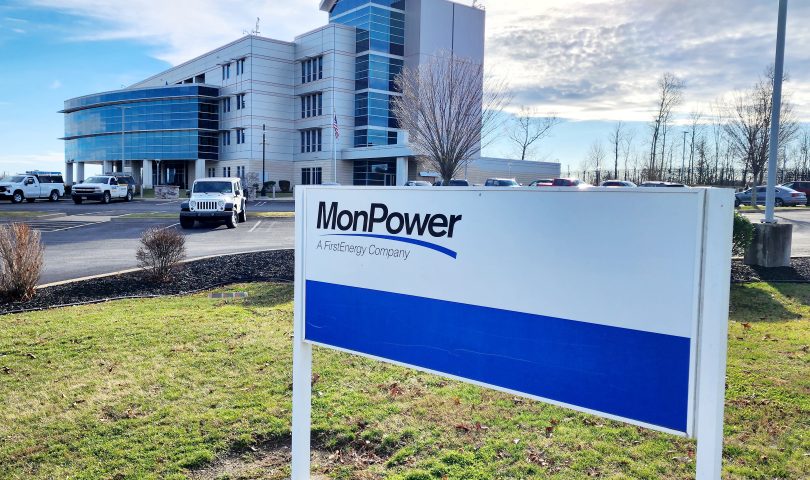MORGANTOWN – The state Public Service Commission has OK’d the modified rate hike for Mon Power and Potomac Edison that the companies agreed to in a December settlement that the companies reached with various interested parties.
Last August, the companies asked for a hike that would have raised the average residential customer bill about $11.05 per month, from $115.05 to $126.10 – a 9.6% increase.
The PSC on Dec. 30 approved the settlement between the companies and several industrial and consumer groups that intervened in the case, with one modification and a further order regarding the companies’ proposed purchase of the Pleasants Power Station.
Through the settlement, the increase will be half of what the companies sought: For an average residential customer using 1,000 kWh (kilowatt hours) per month, ig would be $5.53, raising the bill from $115.05 to $120.58 per month.
The case is called an ENEC – Expended Net Energy Cost – case to recover fuel, purchased power and transmission costs, and PJM regional energy grid participation costs (summarized as purchased power expenses) incurred to provide service to customers. ENEC cases are reviewed annually.
Mon Power and Potomac Edison are FirstEnergy sister companies serving most of northern West Virginia along with the Eastern Panhandle and western Maryland.
The companies requested a total rate hike of $183.8 million, reflecting a total 12.2% hike for all customers, including commercial/industrial. In the settlement, the parties agreed to a hike of $91.9 million, with the remaining $91.9 million deferred and carried over to the companies’ 2023 ENEC proceeding.
The ENEC case covered the companies’ costs for the review period of Fiscal Year 2022: July 1, 2021 through June 30, 2022. In deferring the second half of the rate hike to the 2023 ENEC review, the parties in the settlement agreed that the review period is closed.
But in its order, the PSC indirectly acknowledged the issue of the companies higher-than-expected fuel costs, which factored into their proposed rate hike. “The Commission will not approve a closure of this review period without a review of the prudency of the companies’ fuel costs during this period. Therefore, the review period will remain open.”
In case testimony, the companies agreed that Fort Martin suffered low coal inventory levels, but disagreed with the contention from various parties that insufficient supplies led to lower-than-expected revenues at their coal-fired plants. The companies said the supply shortages were the result of market or environmental factors outside their control, including problems at the supply mines.
Pleasants purchase
Back in 2017, Mon Power and Potomac Edison were trying to buy it from FirstEnergy sister Allegheny Energy. At the time, large energy users and some of the same citizen groups involved in this case were concerned that the move was an effort to move Pleasants from the unregulated to the regulated market, effectively shifting the plant’s financial risks from stockholders to ratepayers. The PSC’s Consumer Advocate Division also opposed the sale.
The PSC approved the plan in January 2018 but the Federal Energy Regulatory Commission denied it because of the shifting of the cost burden and the companies abandoned the plan that February.
In testimony in the current ENEC case, the CAD reversed itself and recommended the companies buy Pleasants. CAD said Pleasants has better emissions control equipment than Fort Martin, is better situated to receive coal supplies than Fort Martin, and could be acquired cheaply from current owner Energy Harbor, which plans to close it.
In its order in this case, the PSC said the potential purchase of Pleasants is outside the scope of an ENEC case, which deals only with energy production costs. But because parties raised the issue and the companies said in testimony that they’re willing to evaluate the possibility, the PSC is requiring the companies to prepare a report evaluating the purchase, due by March 31.
After the report is filed, the PSC said, upon petition or its own motion, it may decide that a separate proceeding is appropriate to address the report.
Asked about the order, the companies said on Tuesday, “Mon Power and Potomac Edison are pleased with the commission’s unanimous decision to approve the settlement in our ENEC case. We also accept the provisions related to leaving the review period open and the required evaluation of the Pleasants plant.”
Energy Efficient West Virginia is one of the groups that opposed the Pleasants purchase in 2107 and remains opposed.
Emmett Pepper, EEWV policy director, said on Tuesday, “We do not believe that an additional power plant the size of Pleasants is needed to meet the needs of Mon Power/Potomac Edison customers, whether or not the Fort Martin plant continues operation; there certainly has not been a showing that one is needed in any testimony.
“If and when Mon Power/Potomac Edison does show a need for new energy or capacity, we need to harness the power of the free market to find the best option for ratepayers. If the PSC only considers one proposal in a vacuum, it will be impossible to know if that one proposal is the best one. We need to have an even playing field where all options can be considered, if we truly want an ‘all-of-the-above’ energy approach in the state, as Governor Justice has stated he supports.”
Pepper mentioned the various groups that opposed the 2017 effort, labeling it a bad deal for ratepayers. “Apparently, its current owner feels the same way since they don’t want to operate it any more. So it makes no sense from a ratepayer perspective to give it special treatment and not consider any other options.”
Tweet David Beard @dbeardtdp Email dbeard@dominionpost.com




